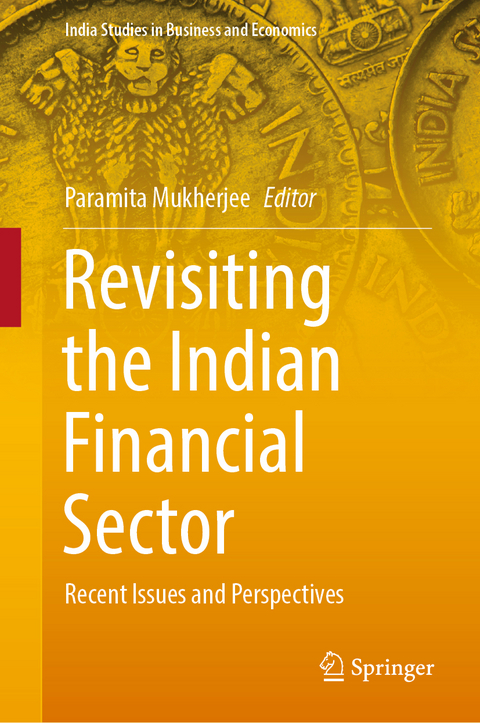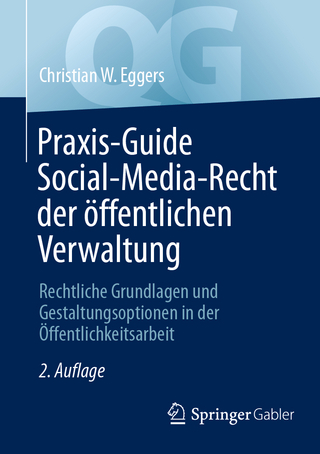
Revisiting the Indian Financial Sector
Springer Verlag, Singapore
978-981-16-7667-3 (ISBN)
The opening up of financial markets and emergence of institutional investors have been a significant phenomenon in the Indian context. At this backdrop of increasing financial integration, the impact of financial liberalisation on the overall development of the sector, and how the global policies and events influence the Indian financial sector, are analysed in the book. The emergence of new regulations in the capital markets to instill more discipline and transparency, have also changed the way corporates take financing decisions. For example, regulatory authorities are continuously reviewing norms pertaining to issues like promoters’ shareholding owing to risks arising from excessive leverage and the linkages between financial intermediaries. Corporate governance, environmental aspects are some important additions in corporate financing norms in the recent past. The book incorporates a discussion on this, too. Apart from these, the book also has incorporated several aspects on an emerging concept called financial inclusion, its measurement and constraints to achieve the same. And finally, at the backdrop of the disruption created by the COVID-19 pandemic, the impact on the Indian capital market is also discussed.
Contributions are based on rigorous empirical research and incorporate the perspectives of renowned academicians in the field of finance and financial economics across the country. Apart from the research community, this book will also be helpful for financial analysts working in the financial sector to have some idea about the current issues, the direction of research on those issues and different perspectives on them.
Paramita Mukherjee is Professor (Economics) at International Management Institute Kolkata. She has been associated with IMI Kolkata since 2012 and has handled the responsibility of Dean (Academics). She has completed her Bachelors in Economics from Presidency College, Kolkata and MS in Quantitative Economics from Indian Statistical Institute, Kolkata. She completed her PhD from Jadavpur University. She has twenty three years of experience in industry, research and academics, with stints at AC Nielsen (formerly ORG MARG) as Research Associate, ICRA as Junior Economist and renowned business schools as faculty member. She has been in academics for more than sixteen years. She teaches courses on managerial economics, financial institutions and markets, financial risk management, applied econometrics and business forecasting. Her research interest lies in financial economics, applied econometrics and macroeconomics. She has worked on contemporary issues in financial sector and authored anumber of research papers in international journals of repute. She has worked on issues like foreign institutional investors, mutual funds, stock market integration, volatility in stock markets, gold market, share repurchase, financial integration in Asian countries etc. She has also authored research papers involving macroeconomic issues like inflation, public finance issues like efficiency of stamp duty revenue collection etc. She has publications in journals like Applied Financial Economics, Emerging Markets Finance and Trade, Journal of International Trade and Economic Development, Economic Change and Restructuring, Resources Policy, Asia-Pacific Development Journal, Journal of Emerging Market Finance, Economic and Political Weekly, Global Business Review among others. She has been awarded with research grants from organisations like India Gold Policy Centre sponsored by World Gold Council. She has also handled consulting assignments.
Introduction.- Measuring financial inclusion: A survey.- Financial Inclusion: A Measurement and Comparative Analysis of Countries from Europe and Asia.- Financial Constraints and Export Participation: A Case Study of Indian Textile Industry.- Financial Liberalization and Financial Development: An Event Study on Emerging Markets.- Why do Group Loans Fail in Backward Areas? .- Regime Switching Dynamic Risk of Indian Stock Market.- Modelling Functional Relationship between Corporate Environmental Expenditure, Performance and Disclosure.- Indian Capital Market During the COVID-19 Crisis.
| Erscheinungsdatum | 28.01.2022 |
|---|---|
| Reihe/Serie | India Studies in Business and Economics |
| Zusatzinfo | 46 Illustrations, color; 28 Illustrations, black and white; XIII, 300 p. 74 illus., 46 illus. in color. |
| Verlagsort | Singapore |
| Sprache | englisch |
| Maße | 155 x 235 mm |
| Themenwelt | Sozialwissenschaften ► Politik / Verwaltung ► Staat / Verwaltung |
| Wirtschaft ► Betriebswirtschaft / Management ► Finanzierung | |
| Wirtschaft ► Volkswirtschaftslehre ► Finanzwissenschaft | |
| Wirtschaft ► Volkswirtschaftslehre ► Makroökonomie | |
| Wirtschaft ► Volkswirtschaftslehre ► Wirtschaftspolitik | |
| Schlagworte | Corporate Finance • Financial Development • Financial Inclusion • Financial Liberalization • Financial Sector • Indian banking • NBFC |
| ISBN-10 | 981-16-7667-4 / 9811676674 |
| ISBN-13 | 978-981-16-7667-3 / 9789811676673 |
| Zustand | Neuware |
| Informationen gemäß Produktsicherheitsverordnung (GPSR) | |
| Haben Sie eine Frage zum Produkt? |
aus dem Bereich


